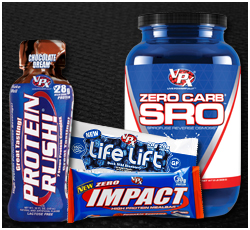In 2009 more than 871,000 people in the United States were being treated for End Stage Kidney Disease (ESRD). Patients with ESRD have a few options; they can try to get a kidney transplant, go on dialysis, or choose to not be treated. Dialysis is a method of filtering toxins in the body either using a dialysis machine, or using the body’s own peritoneal cavity. Without dialysis or a transplant, the outcome for ESRD patients is very poor, so when faced with the decision, most choose dialysis.
Although dialysis is an effective way to remove most of the body’s toxins, it is not perfect, and does not do as good of a job as a healthy kidney would. Because of imperfections in the dialysis process as well as other factors, patients with ESRD need to be on a very strict diet. Part of this diet includes higher than normal protein intakes. The recommendations for protein for dialysis patients are 1.2g/kg -1.5g/kg depending on the individual and treatment type.  For reference, the standard recommended protein intakes for individuals are 0.8g/kg body weight.
For reference, the standard recommended protein intakes for individuals are 0.8g/kg body weight.
Dialysis patients can choose to get their protein by eating eggs, seafood, lean meats, and supplements. Unfortunately, foods such as dairy, legumes, and nuts are not a good source of protein for dialysis patients due to high potassium and phosphorus contents. As patients age, or their time spent on dialysis lengthens they often tire of eating meat, have difficulty chewing or swallowing meats, or do not have the energy to prepare meats. In this setting, protein supplements become a great option for dialysis patients.
Most supplements come ready to eat or very easy to prepare. Supplements often come in flavors that patients miss and enjoy incorporating into their diet. They can also be a great way to pack a lot of protein into a concentrated package. Some patients have fluid restrictions so protein bars or powders are a great choice. Patients can mix powder with juice, water, hot or cold cereal, or eggs. Bars can be taken as snacks or as meal replacements depending on the individual. Ready to drink shakes are a great to-go thirst and protein fix. Many dialysis patients are also diabetic so low sugar protein supplements such as VPX’s Life Lift and Zero Impact bars are an excellent choice since they are low in total sugars and high in fiber and protein. The Pumpkin Supreme flavor Zero Impact bar is loaded with protein, low in total sugars and is a delicious meal replacement or supplement. Some other favorite supplements are the Strawberry Dream and Chocolate Dream Protein Rush ready to drink (RTD’s) protein shakes. With only 180 calories and 28grams of protein, these are the perfect snack or supplement for my patients.
When looking for a protein supplement for a dialysis patient choose from the many VPX products that have 15g or more protein per serving, and 15% or less percent daily value for phosphorus and potassium. Although it is not required to list phosphorus or potassium content on the nutrition facts label, many VPX products do, allowing their customers to make informed choices.
This article and/or product are not intended to provide medical advice, diagnosis or treatment.
 This is a guest post by Corinne Rose Kohlen, a 31 year old (soon to be 32!) registered dietitian at DaVita Dialysis with a Masters Degree in Nutrition and certified diabetes educator. Her background is in rock climbing and she used to compete and work professionally as a rock climber for Sea World. She has been obstacle racing for 2.5 years and have done over 30 spartan races, 10 tough mudders and many Ultra races. Her favorite races are Survival runs. This year she will be returning to World's Toughest Mudder for the third time. Her specialties are rope climbs, traverse wall, and chicken carrying.
This is a guest post by Corinne Rose Kohlen, a 31 year old (soon to be 32!) registered dietitian at DaVita Dialysis with a Masters Degree in Nutrition and certified diabetes educator. Her background is in rock climbing and she used to compete and work professionally as a rock climber for Sea World. She has been obstacle racing for 2.5 years and have done over 30 spartan races, 10 tough mudders and many Ultra races. Her favorite races are Survival runs. This year she will be returning to World's Toughest Mudder for the third time. Her specialties are rope climbs, traverse wall, and chicken carrying.







